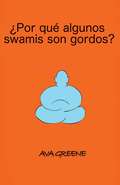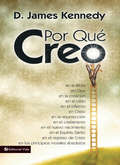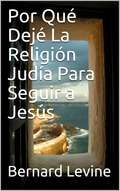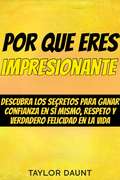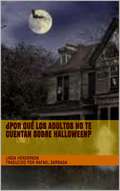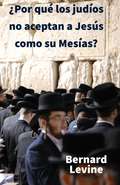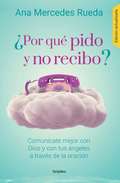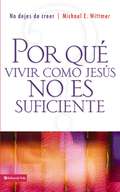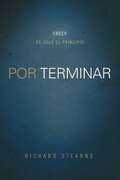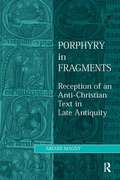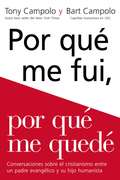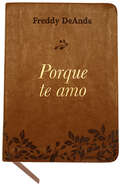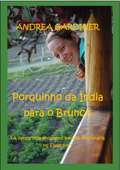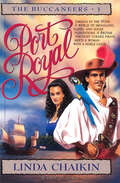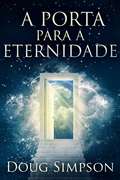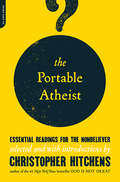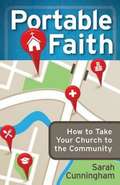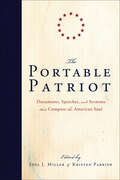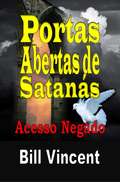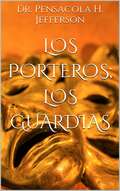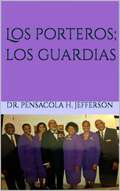- Table View
- List View
¿Por qué algunos swamis son gordos?
by Ava Greene“¿Por qué algunos swamis son gordos?” es un acercamiento informal a la búsqueda de la verdad. Iluminación y verdad —¿qué son y dónde están? W. M. Raebeck, instructora de yoga californiana, lleva su alma hacia una búsqueda que es tanto espontánea como agonizante. Sus vociferaciones de media noche —que incluyen realizaciones lúcidas, preguntas cósmicas, y desvíos extravagantes— nos guían con facilidad. Y aún así, el “amanecer” metafísico que tanto anhela, se mantiene lejos de su alcance. No es hasta que Raebeck, con impotencia, admite que no está llegando a ningún lugar, que una verdadera calma se instala en ella. Es entonces cuando se tropieza con la escena de su búsqueda: esa entrega (desde nuestros propios diseños) puede ser el camino más directo, mientras que intentarlo demasiado puede llevar a más de lo mismo. “¿Por qué algunos swamis son gordos?” es una mirada no tan seria hacia lo sagrado. Te perderás y te encontrarás en la escritura pura y enérgica de W. M. Raebeck. Su candor te acerca hacia tu voz interior. Y su tracción valiente no deja de traerte al momento presente, la experiencia escurridiza que más importa. Fragmento: La "iluminación", es solo una herramienta. Lo que haces con ella, cómo la usas para hacer la paz, cómo sirves al universo, ese es el próximo paso. Algunas personas no tienen que esforzarse para hacer estas cosas. Como lanzar timidamente la pelota sobre la cerca, sus vidas se tiñen con esa devoción desde el principio —pescadores griegos, cultivadores de arroz en Indonesia, esos que no pierden ni un minuto, se levantan con el sol y realizan el trabajo del día, de manera cíclica como la naturaleza. Avanzan inocentemente por el calendario, década tras década, se casan, son padres, envejecen, y luego mueren; lanzan la pelota fuera de la zona de juego con el primer golpe; caminan por las bases. No se sienten ni cansados ni parte del problema. En algún mom
Por que deixei a religião judaica para seguir Jesus
by Bernard Levine Emanuel Guedes SantosTenho certeza que você vai ficar muito surpreso ao saber que na maioria das casas judaicas, você não vai encontrar uma Bíblia lá. Mas, não é muito estranho, você pode dizer ... .que por que a nação conhecida como o 'Povo do Livro' não possui uma Bíblia em suas casas? O que é ainda mais surpreendente é que você pensaria que o povo judeu segue e conhece bem as Escrituras, a chocante verdade real é que a maioria dos antigos livros do testamento são um mistério para os judeus porque eles não sabem e nunca viram as profecias Sobre Jesus nos livros como Ezequiel, Isaías, Daniel e Malaquias. E, você sabia que os judeus não sabem o que estão dizendo quando estão orando, como a maioria dos judeus não podem entender o hebraico. Então agora, eu suponho que você deve estar se perguntando como os judeus se livrar de todos os seus pecados se eles não acreditam em Jesus Cristo? ... o que os judeus acreditam ser o caminho para chegar ao céu? Você ficará chocado ao descobrir o que está acontecendo no mundo judaico.
Por Qué Dejé La Religión Judía Para Seguir a Jesús
by Bernard Levine Michelle Vergara R.Estoy seguro de que te sorprenderá saber que en la mayoría de las casas judías, no encontrarás una Biblia. Pero ¿no será muy extraño -podrías decir- que la nación que se hace llamar “La Gente del Libro” no tenga una Biblia en sus casas? Lo que es aún más sorprendente, a pesar de que podrías pensar que los judíos siguen y conocen muy bien las Escrituras, la impactante realidad es que la mayoría de los libros del Viejo Testamento son un misterio para los judíos, ya que nunca han conocido y visto las profecías sobre Jesús en los libros de Ezequiel, Isaías, Daniel o Malaquías. Además, ¿sabías que los judíos no saben lo que dicen cuando están orando, porque la mayoría no entiende hebreo? Entonces ahora, supongo que debes estar preguntándote cómo los judíos se deshicieron de todos sus pecados si no creen en Jesucristo... ¿Cuál es la forma de llegar al cielo según sus creencias? Te asombrarás al descubrir lo que pasa en el mundo judío.
Por que eres impresionante: Descubra los secretos para ganar confianza en sí mismo, respeto y verdadero felicidad en la vida
by Taylor Daunt¡Recupere su autoestima para una vida más feliz, más saludable e infinitamente más impresionante hoy! Imagínese despertarse por la mañana y estar lleno de vida. Estás enérgico al levantarte de la cama y estás listo para atacar el día porque nada puede detenerte. Cualquier tipo de desafío que se te presente, estás preparado para afrontarlo de frente y superarlo. Se enorgullece de su trabajo y sus relaciones porque comprende su valor. También comprendes el valor que aportas al día, por eso te conduces con fuerza y dignidad. En "Por qué eres impresionante", aprenderás: ✓ Qué es la baja autoestima y cómo se desarrolla a lo largo del tiempo a través de muchos factores diferentes. ✓ Cómo la baja y alta autoestima afecta nuestra mentalidad, procesos de pensamiento y vidas en general. ✓ Pasos de acción, estrategias y técnicas específicas para ayudar a mejorar nuestra autoestima al volver a cablear nuestras vías cerebrales y neuronales. ✓ Autoestima y autovaloración ✓ Cómo puedes importarte a ti mismo ✓ Cómo aclarar sus verdaderos valores ✓ Manejo de su ego ✓ La idea de ansiedad social y cómo juega un papel en diferentes entornos sociales. ✓ Estrategias específicas para ayudar a construir nuestra autoestima en diferentes áreas de nuestra vida. ✓ La importancia del autocuidado y su relación con la autoestima y la confianza en uno mismo. ✓ Técnicas específicas para iniciar adecuadamente el autocuidado desde muy diversos aspectos. ¡Y mucho más! Con altos niveles de autoestima y confianza en sí mismo, tendrá la capacidad de crear su propio camino, tomar su propia decisión, perseguir sus propias metas y vivir la vida que elija. ¡Alcancemos sus metas lo antes posible! ¡Recoja su copia del libro ahora mismo haciendo clic en el botón COMPRAR AHORA en la parte superior de esta página!
¿Por qué los adultos no te cuentan sobre Halloween?
by Linda Henderson¿Por qué los adultos no te cuentan sobre Halloween? Por Linda Henderson Este libro saca a relucir el lado oscuro de Halloween y presenta a los jóvenes una alternativa mucho mejor. ¿Por qué los adultos no te cuentan sobre Halloween? Es divertido vestirse con disfraces que dan miedo e ir a pedir dulces para Halloween, ¿verdad? Escuche la verdadera historia de "Bill", que obtuvo más de lo que esperaba cuando jugó con una tabla Ouija con su novia. También puedes aprender de dónde viene "Halloween". ¿Qué te traerá más alegría que tener miedo o comer caramelos gratis? Lo descubriras en este libro!
¿Por qué los judíos no aceptan a Jesús como su Mesías?
by Bernard Levine¿Por qué los judíos no aceptan a Jesús como su Mesías? Por Bernard Levine Permítanme explicarles por qué los judíos no aceptan a Jesús como su Mesías. Mi propio pueblo, la nación judía, no reconocerá ni aceptará a Jesucristo como el Mesías. Sin embargo, hay muchas pruebas en la Biblia que demuestran que Jesús, el que murió en la cruz por nuestros pecados, es realmente el Mesías que pronto llegará. Entonces, ¿por qué los judíos no aceptan a Jesús como su Mesías? Permítanme explicarles…
¿Por qué no fluye el amor en mi vida?: Sana tus bloqueos emocionales con la ayuda de Dios y de los ángeles
by Ana Mercedes Rueda Zapata¿Por qué no consigo pareja? ¿Cuáles son los bloqueos que afectan mi vida emocional? En este libro, con la ayuda de la terapeuta, Ana Mercedes Rueda; los ángeles y Dios, los lectores descubrirán cómo sanar los bloqueos en su vida emocional y afectiva. ¿Por qué no consigo pareja? ¿Cuáles son los bloqueos que afectan mi vida emocional? En este libro, con la ayuda de la terapeuta, Ana Mercedes Rueda; los ángeles y Dios, los lectores descubrirán cómo sanar los bloqueos en su vida emocional y afectiva. Descubre cómo sanar los bloqueos emocionales que afectan tu vida y construye la relación que siempre has soñado con la ayuda de la reconocida terapeuta de ángeles Ana Mercedes Rueda.A partir de una serie de oraciones, ejercicios y mensajes celestiales que encontrarás a lo largo del libro podrás detectar los motivos que están impidiendo que seas plenamente feliz para que vuelvas a creer en el amor.
¿Por qué pido y no recibo?: Comunícate mejor con Dios y con tus ángeles a través de la oración
by Ana Mercedes RuedaNueva edición del best seller de Ana Mercedes Rueda. Incluye cuaderno de ejercicios. Muchas personas oran y le piden apoyo a Dios y sienten que sus oraciones no son escuchadas ni respondidas. Por eso se preguntan si están comunicándose de manera correcta, o si no son lo suficientemente buenos para que Dios les dé lo que desean. Este libro habla sobre cómo mejorar ese diálogo, enseña cuáles son los pasos para hacer una oración y las estrategias que nos ayudan a entregar nuestras peticiones de una manera más clara para obtener los resultados que queremos. Dios siempre nos responde, pero debemos entender que el lenguaje oracional no es un monólogo sino una conversación. Se trata no solo de saber pedir sino de saber escuchar la respuesta.
Por qué vivir como Jesús no es suficiente: No dejes de creer
by Michael E. Wittmer¿ES POSIBLE SABER ALGO? ¿EL REINO DE DIOS INCLUYE A NO CRISTIANOS? ¿QUIÉNES SON PEORES: LOS HOMOSEXUALES O LOS INTOLERANTES QUE LOS PERSIGUEN? Estas son preguntas importantes. Difíciles. Interrogantes que dividen a los cristianos a través de las líneas liberal y conservadora. Los conservadores aman sus creencias y los liberales creen en su amor. Cada uno presiona al otro a extremos opuestos. Los fundamentalistas sostienen que no importa cómo vivamos, en tanto creamos en Jesús, mientras que algunos cristianos emergentes responden que no importa lo que creamos, mientras que vivamos como él. El teólogo Michael Wittmer considera que ambos lados exageran y formula una tercera vía que conserva los aciertos de ambos. El autor examina diez preguntas clave que confrontan a los cristianos contemporáneos y muestra cómo tanto la creencia correcta como la práctica correcta son necesarias para un cristiano auténtico. Presentamos aquí un recordatorio apremiante de que las mejores prácticas solo pueden surgir de las creencias verdaderas. Los cristianos genuinos nunca dejan de servir porque nunca dejan de amar, y nunca dejan de amar porque nunca dejan de creer.
Por terminar: Creer es solo el principio
by Richard StearnsQué haces después de creer?Antes de su partida, Jesús les encomendó a sus discípulos --y también a nosotros-- una misión muy importante: iniciar una revolución espiritual y social que le diera un giro total al mundo. Debíamos ir a los confines de la Tierra a proclamar el evangelio y demostrar el amor de Dios a un mundo lastimado y hostil. Jesús llamó a esta misión "apresurar la llegada del Reino de Dios" y prometió regresar cuando el trabajo estuviera hecho.Sin embargo, dos mil años después, la misión sigue inconclusa. Este libro es una invitación a descubrir la vida para la que Dios te creó. No es sobre fracasos y culpas, sino sobre oportunidades y regocijo, porque Dios no nos obliga --Él nos invita--. Nos ofrece darle sentido, satisfacción y trascendencia a nuestra vida pero siempre nos da la opción de no aceptarlo, y lamentablemente, muchos lo hacen. Es momento de redescubrir nuestro llamado. Es momento de reiniciar. Del exitoso autor de El vacío en nuestro evangelio, ganador del premio ECPA en la categoría de Libro cristiano del año 2010.
Porphyry in Fragments: Reception of an Anti-Christian Text in Late Antiquity (Studies in Philosophy and Theology in Late Antiquity)
by Ariane MagnyThe Greek philosopher Porphyry of Tyre had a reputation as the fiercest critic of Christianity. It was well-deserved: he composed (at the end the 3rd century A.D.) fifteen discourses against the Christians, so offensive that Christian emperors ordered them to be burnt. We thus rely on the testimonies of three prominent Christian writers to know what Porphyry wrote. Scholars have long thought that we could rely on those testimonies to know Porphyry's ideas. Exploring early religious debates which still resonate today, Porphyry in Fragments argues instead that Porphyry's actual thoughts became mixed with the thoughts of the Christians who preserved his ideas, as well as those of other Christian opponents.
Porqué me fui, porqué me quedé: Conversaciones Sobre El Cristianismo Entre Un Padre Evangélico Y Su Hijo Humanista
by Bart Campolo Tony CampoloAutor cristiano, best seller, activista y erudito Tony Campolo y su hijo Bart, un reconocido humanista, debaten sus diferencias espirituales y exploran las semejanzas entre la fe, las creencias y la esperanza que comparten. En una cena de acción de gracias, Bart Campolo, de 50 años de edad, le anunció a su padre, el pastor evangélico Tony Campolo, que después de una vida inmerso en la fe cristiana, ya no creía en Dios. La revelación sacudió la dinámica familiar de los Campolo y obligó a padre e hijo a reconsiderar sus propios recorridos en la fe.En este libro los Campolos reflexionan sobre sus odiseas espirituales personales y cómo evolucionaron cuando sus caminos se divergieron. Tony, renombrado maestro y pastor cristiano, relata su experiencia, desde la primer aflicción al descubrir el cambio en la fe de Bart, a la sanidad subsiguiente que encontró en su propio autoanálisis, hasta aceptar el punto de vista de su hijo.Bart, un autor humanista y capellán de la Universidad del Sur de California, habla de su caminar espiritual desde el cristianismo progresivo al humanismo, revelando cómo afectó su perspectiva y transformó la relación con su padre. Una barrera dolorosa entre un padre y su hijo que pudo haberlos dividido irremediablemente se convirtió en una oportunidad que ofreció a cada uno una perspectiva no solo de lo que los separa, sino de lo que es aún más importante, lo que los une.
Porque te amo / Because I Love You
by Freddy DeAndaDe manos del autor bestseller Freddy DeAnda llega la forma perfecta de decir "Te amo". Este libro de regalo, exquisitamente diseñado, es el obsequio perfecto para cualquier pareja, joven o no tan joven. Cubierto de cuero, cada una de sus páginas ofrece una razón práctica para vivir el amor por y en el matrimonio. Desde consejos creativos para citas, hasta promesas para escuchar de cerca, cada página es un acto de amor y compromiso que se puede poner en práctica. Este es el regalo perfecto para parejas comprometidas, recién casadas, para las que celebran un aniversario o el Día del Amor, pero también es un pretexto ideal para decir "te amo" en la página de dedicatoria. Tiene un marcador de tela y espacio para crear los votos propios.
Porquinho da Índia para o Brunch A minha vida enquanto médica missionária no Equador
by Fabiana Rodrigues Castelo Branco Andrea Gardiner“Porquinho da Índia para o Brunch oferece excelente perspectiva sobre a rotina diária do Equador, com as privações da pobreza os perigos junto à fé simples e a hospitalidade das pessoas que são cuidadas pela Dra.Andrea Gardiner. No desenrolar da história, Andrea honestamente compartilha suas próprias dúvidas e esforços enquanto cria as suas filhas em uma cultura muito diferente da do seu nascimento. Mais do que uma história de uma médica missionária,esta é bem mais um desdobramento da jornada de confiança e obediência a Deus de uma mulher, chamada por Ele para servir aos que sofrem..Eu sinceramente recomendo Porquinho da Índia para o Brunch, mas tenha cuidado – você será desafiado!” Catherine Campbell, autora de ‘Under the Rainbow’ e ‘God Knows Your Name’
Port Royal: Jamaica in the 1700s (Buccaneers! #1)
by Linda ChaikinAs the Caribbean Sea teems with piracy and privateering, Captain Baret "Foxworth" Buckington searches for his father. Though declared legally dead, Baret is certain his father is alive, perhaps being held prisoner. Willing to jeopardize his title, his inheritance, and his life in order to find his father, he sets sail and swears vengeance upon Spain.Amidst the slavery, brutality, and cruel gossip on a Jamican Sugar estate, Miss Emerald Harwick seeks an escape. Rejected by her father's wealthy family, Emerald is constantly reminded of her deceased mother's notorious reputation and her father's escapades on the high seas. Only two things keep her going—working in the Christian Singing School and her plans to secretly marry an indentured servant. In desperation, they plan to leave Jamaica. But Emerald's father has other plans!As their paths intertwine, Emerald and Baret set out on a journey filled with danger, intrigue, and romance.
Port Royal: Jamaica in the 1700s (Buccaneers! #1)
by Linda ChaikinAs the Caribbean Sea teems with piracy and privateering, Captain Baret "Foxworth" Buckington searches for his father. Though declared legally dead, Baret is certain his father is alive, perhaps being held prisoner. Willing to jeopardize his title, his inheritance, and his life in order to find his father, he sets sail and swears vengeance upon Spain.Amidst the slavery, brutality, and cruel gossip on a Jamican Sugar estate, Miss Emerald Harwick seeks an escape. Rejected by her father's wealthy family, Emerald is constantly reminded of her deceased mother's notorious reputation and her father's escapades on the high seas. Only two things keep her going—working in the Christian Singing School and her plans to secretly marry an indentured servant. In desperation, they plan to leave Jamaica. But Emerald's father has other plans!As their paths intertwine, Emerald and Baret set out on a journey filled with danger, intrigue, and romance.
A Porta Para a Eternidade
by Doug SimpsonDurante sua velhice, John, um professor de inglês aposentado do Ensino Médio, decide, finalmente, escrever sobre suas memórias. A sua história começa quando ele era criança, com a presença de um espírito da sua idade, que o visitava para brincar. Para John, Jason é uma criança normal como ele, e ele nunca parou para pensar de onde Jason vinha e para onde ia quando desaparecia. Ao passar dos anos, mais amigos se juntam a eles e, conforme John envelhece, mais e mais informações, sobre o mundo espiritual, são divididas com ele por esses amigos. Em A Porta para a Eternidade, John relata os diversos encontros que ele, sua família e amigos próximos vivenciam com espíritos, Mentores Espirituais, espíritos presos à terra, casas assombradas e visitas ao Paraíso. Explica também sobre grupos espirituais e o propósito de seus espíritos que reencarnam juntos, durantes diversas vidas, para, coletivamente, evoluírem e readquirirem seus estados originais: perfeitos, como quando Deus os criou.
The Portable Atheist: Essential Readings for the Nonbeliever
by Christopher HitchensFrom the #1 New York Times best-selling author of God Is Not Great, a provocative and entertaining guided tour of atheist and agnostic thought through the ages--with never-before-published pieces by Salman Rushdie, Ian McEwan, and Ayaan Hirsi Ali.Christopher Hitchens continues to make the case for a splendidly godless universe in this first-ever gathering of the influential voices--past and present--that have shaped his side of the current (and raging) God/no-god debate. With Hitchens as your erudite and witty guide, you'll be led through a wealth of philosophy, literature, and scientific inquiry, including generous portions of the words of Lucretius, Benedict de Spinoza, Charles Darwin, Karl Marx, Mark Twain, George Eliot, Bertrand Russell, Emma Goldman, H. L. Mencken, Albert Einstein, Daniel Dennett, Sam Harris, Richard Dawkins, and many others well-known and lesser known. And they're all set in context and commented upon as only Christopher Hitchens--"political and literary journalist extraordinaire" (Los Angeles Times)--can. Atheist? Believer? Uncertain? No matter: The Portable Atheist will speak to you and engage you every step of the way.
Portable Faith: How to Take Your Church to the Community
by Sarah CunninghamHelp church members to talk their faith into their everyday worlds. Portable Faith provides simple but effective ways to help people go public with their faith. Author Sarah Cunningham provides samples of activities and exercises that encourage people to meet others in the community--for example: begin by mapping out where your church members live; create a fellowship meal of ethnic foods that come from the church's surrounding community; start a reading group at work; or simply participate in a neighborhood watch. These activities are flexible and workable even with small budgets. They can be done by individuals, Bible study groups, Sunday morning classes, or by the entire church. By the end of the book, Sarah Cunningham hopes that readers will look at their church community with new eyes.
The Portable Patriot: Documents, Speeches, and Sermons that Compose the American Soul
by Joel J. Miller & Kristen ParrishWhat does it mean to think, believe, and act like an American? Get the Declaration of Independence, the Constitution, the Bill of Rights, and other important United States historical documents all in one book!The soul of America is far more than a concept—it is a people. Even the most sacred principles mean very little unless lived out passionately by an informed citizenry. In The Portable Patriot you&’ll find a carefully assembled sampling of American history&’s most formative words, written by the people who made that extraordinary history—George Washington, Alexander Hamilton, Benjamin Franklin, and many more of America's Founding Fathers. Speeches and sermons, essays and extracts, poems and proclamations illumine such values as independence, virtue, humility, bravery, thrift, prayer, enterprise, liberty, and reliance on God. While peering back to the cradle of America&’s national identity, The Portable Patriot also points a way forward, compelling us to heed poet John Dickinson&’s plea to &“rouse your bold hearts at fair Liberty&’s call.&”&“Nothing ignites a patriot&’s heart—or the hope that the truths of our founding era will prevail again—like the documents assembled in The Portable Patriot. How grateful we should be, and how quick to make these historic words our own.&” ?Stephen Mansfield, author, The Forgotten Founding Father and The Faith of the American Soldier&“Our current struggles over taxation, federal debt, and limited government are part of a larger American story. Kudos to Miller and Parrish for highlighting these essential passages.&” ?Hon. Andrew P. Napolitano, Senior Judicial Analyst, Fox News Channel
Portas Abertas de Satanás: Acesso Negado
by Bill VincentVocê já imaginou sua vida livre do pecado e mantendo Satanás fora de sua vida? Tem que haver um caminho. Bill Vincent revela que a maior forma de guerra espiritual para qualquer cristão é a força poderosa da obediência. As PORTAS ABERTAS de SATANÁS lhe darão uma nova revelação de como Deus fornece no Espírito e induz seu coração e mente a encontrar pecados ocultos e identificar rebeliões. Quando você for desafiado a ser santo, descobrirá como a graça lhe dá o poder de não ser mais escravo do pecado.
The Porter of St. Bonaventure's
by James Patrick DerumThis is a well-researched biography of a deeply righteous and truly humble priest. It traces his life from childhood in the Western United States, through his labors in the lumber mills and the railroads, to his priestly vocations with his many sufferings, then to the enormous influence he had on thousands of people.
Los porteros; los guardias
by DR Pensacola H JeffersonUn PROCESO, de cualquier tipo, implica una secuencia de acciones o movimientos que efectúan cambios hacia adelante. “… Y en el PROCESO del tiempo, ACABÓ DE PASAR…” (Génesis 4: 3 KJV). Estos cambios de avance pueden ser una sucesión de actividades gradual, rápida, extremadamente lenta o constante. Independientemente de lo rápido o lento que sea el PROCESO; SIEMPRE es una secuencia continua de acciones o movimientos con un propósito definido y un resultado final. “… A través de este PROCESO el sacerdote te purificará de tu pecado, HACIENDO JUSTICIA con el Señor, y serás perdonado…” (Levítico 5:10 NTV). PROCESO tiene como objetivo mover o llevar a cabo cosas o individuos hacia adelante y la secuencia de acciones o movimientos a menudo parece inexistente o prácticamente invisible. “… Andad POR FE…” (2 Corintios 5: 7 KJV). La secuencia de acciones o movimientos, en un PROCESO, son tareas o procedimientos individuales que TODOS se vinculan para producir una meta o alcanzar un resultado final. “… Luego debe bañarse con agua en un lugar sagrado, (SIGUIENTE) ponerse sus ropas regulares, y (SIGUIENTE) salir a sacrificar un holocausto para él y un holocausto para el pueblo. A través de este PROCESO, se purificará a sí mismo y a la gente, haciéndolos justos con el Señor… ”. (Levítico 16:24 NLT). El PROCESO de secuencias y acciones se trata de una cosa o posiblemente un individuo QUE SE ALTERA a través de esta procesión de movimientos hacia adelante. “… A través de este PROCESO, HIZO santo el altar purificándolo…” (Levítico 8: 5 NTV). Eventualmente, PROCESS producirá un resultado después de un cierto período de tiempo. “… Y en el PROCESO del tiempo“ ACABÓ ”A PASAR…” (Génesis 4: 3 KJV). Además, PROCESO es una secuencia de acciones y movimientos que requieren una cierta cantidad de tiempo y tareas o procedimientos particulares que trabajan juntos
Los porteros; los guardias
by DR Pensacola H. JeffersonUn PROCESO, de cualquier tipo, implica una secuencia de acciones o movimientos que efectúan cambios hacia adelante. “… Y en el PROCESO del tiempo, ACABÓ DE PASAR…” (Génesis 4: 3 KJV). Estos cambios de avance pueden ser una sucesión de actividades gradual, rápida, extremadamente lenta o constante. Independientemente de lo rápido o lento que sea el PROCESO; SIEMPRE es una secuencia continua de acciones o movimientos con un propósito definido y un resultado final. “… A través de este PROCESO el sacerdote te purificará de tu pecado, HACIENDO JUSTICIA con el Señor, y serás perdonado…” (Levítico 5:10 NTV). PROCESO tiene como objetivo mover o llevar cosas o individuos hacia adelante y la secuencia de acciones o movimientos a menudo parece inexistente o prácticamente invisible. “… Andad POR FE…” (2 Corintios 5: 7 KJV). La secuencia de acciones o movimientos, en un PROCESO, son tareas o procedimientos individuales que TODOS se vinculan para producir una meta o alcanzar un resultado final. “… Luego debe bañarse con agua en un lugar sagrado, (SIGUIENTE) ponerse sus ropas regulares, y (SIGUIENTE) salir a sacrificar un holocausto para él y un holocausto para el pueblo. A través de este PROCESO, se purificará a sí mismo y a la gente, haciéndolos justos con el Señor… ”. (Levítico 16:24 NLT). El PROCESO de secuencias y acciones se trata de una cosa o posiblemente un individuo QUE SE ALTERA a través de esta procesión de movimientos hacia adelante. “… A través de este PROCESO, HIZO santo el altar purificándolo…” (Levítico 8: 5 NTV). Eventualmente, PROCESS producirá un resultado después de un cierto período de tiempo. “… Y en el PROCESO del tiempo“ ACABÓ ”A PASAR…” (Génesis 4: 3 KJV). Además, PROCESO es una secuencia de acciones y movimientos que requieren una cierta cantidad de tiempo y tareas o procedimientos particulares que trabajan juntos.�
